
The Biggest Disruptor for B2B Business in 2022
At HPE Discover in June 2020, former Cisco CEO turned Venture Capitalist John Chambers shared this warning to business leaders around the globe:
Disrupt, or Get Disrupted.
Buyer habits and demographics are changing rapidly, forcing B2B companies to fight tooth and nail for attention. But, how do you disrupt a trillion-dollar industry like pharma or manufacturing?
The key is creating a centralized, easy to use interface for buying and selling online. One that easily connects buyers and sellers while collecting valuable customer data. For these reasons, 2021 is quickly becoming the year of the B2B marketplace. So, what are B2B marketplaces and what advantages can they provide you?
What is a B2B Marketplace?

In the same way Amazon allows consumers to purchase items from 3rd party vendors on Amazon.com, corporate megaliths like 3M and AB InBev now have online portals that provide better buying experiences for their vendors. In other words, a B2B marketplace is an online store that uses eCommerce functionality to let buyers view different brands and product lines from hundreds of vendors all in one place. Buyers using these B2B marketplaces can easily compare prices and products to ensure they order the products they need at the best price.
2021 MARKET SURVEY
2021 State of eCommerce Report
Answer 5 quick questions for our 2021 State of eCommerce Report to receive a free usability assessment from Redstage!
The industry shift to online marketplaces is not only a result of new software specifically designed to help B2B companies operate more efficiently… Early last year, Bank of America analyst Justin Post said the firm expected Amazon to capture 10% of the addressable B2B market by 2021. Since then, companies around the world from aerospace to construction and more have been launching online marketplaces left and right, hoping to get ahead of the curve. If the alarm bells aren’t ringing yet, they should be, as Amazon’s incredible ability to scale will soon disrupt B2B the same way it dominates retail today.
Competition aside, giving your vendors and buyers a “one-stop shop” experience is just good business. And make no mistake, B2B marketplaces give incredible benefits to the businesses that own them. Let’s take a look at two top companies to learn how their marketplaces strengthen their overall strategy.
Strategic Advantage: AB InBev’s B2B Portal
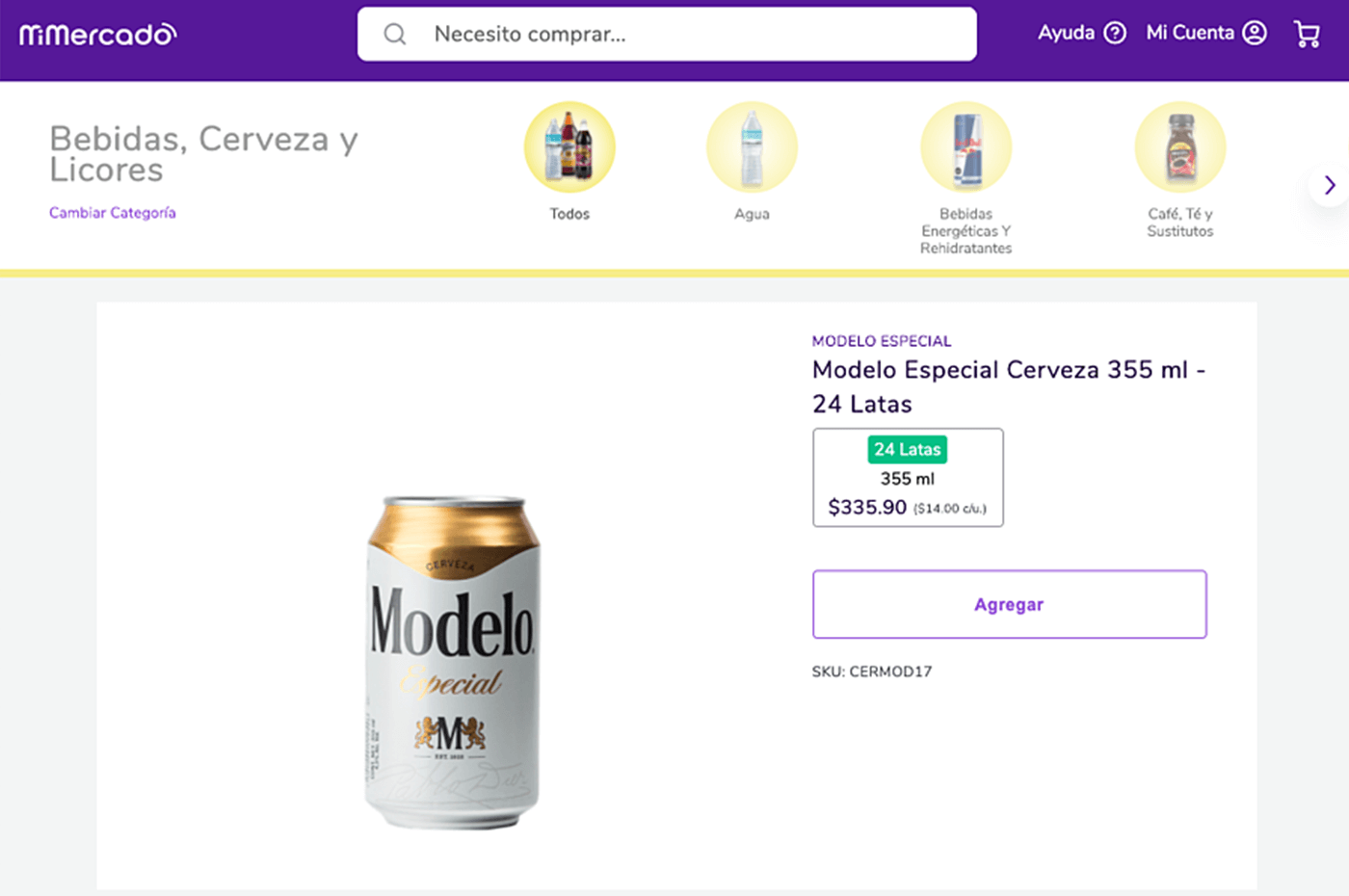
In December, global beer distributor AB InBev (owner of top brands like Budweiser, Corona, and Stella Artois) constructed a one-stop shop B2B marketplace for all the individual vendors of their products. With 98% of AB InBev’s business coming from B2B distribution, providing their sellers a much easier to use and automated way to order stock was extremely important. After generating $6 million GMV in the first month, AB InBev plans to scale this digital platform continuously in 2021 and beyond.
Their new B2B vendor portal also allowed them to map the customer journey for all their vendors. With this insightful data in hand, AB InBev is armed with the tools to continue to improve their buyers’ experience. The data also helps them stay ahead of buyer trends as they change with seasonality and other variables. Constantly improving and changing, the marketplace gives AB InBev added adaptability and flexibility with their commerce operations.
Strategic Advantage: 3M’s Marketplace
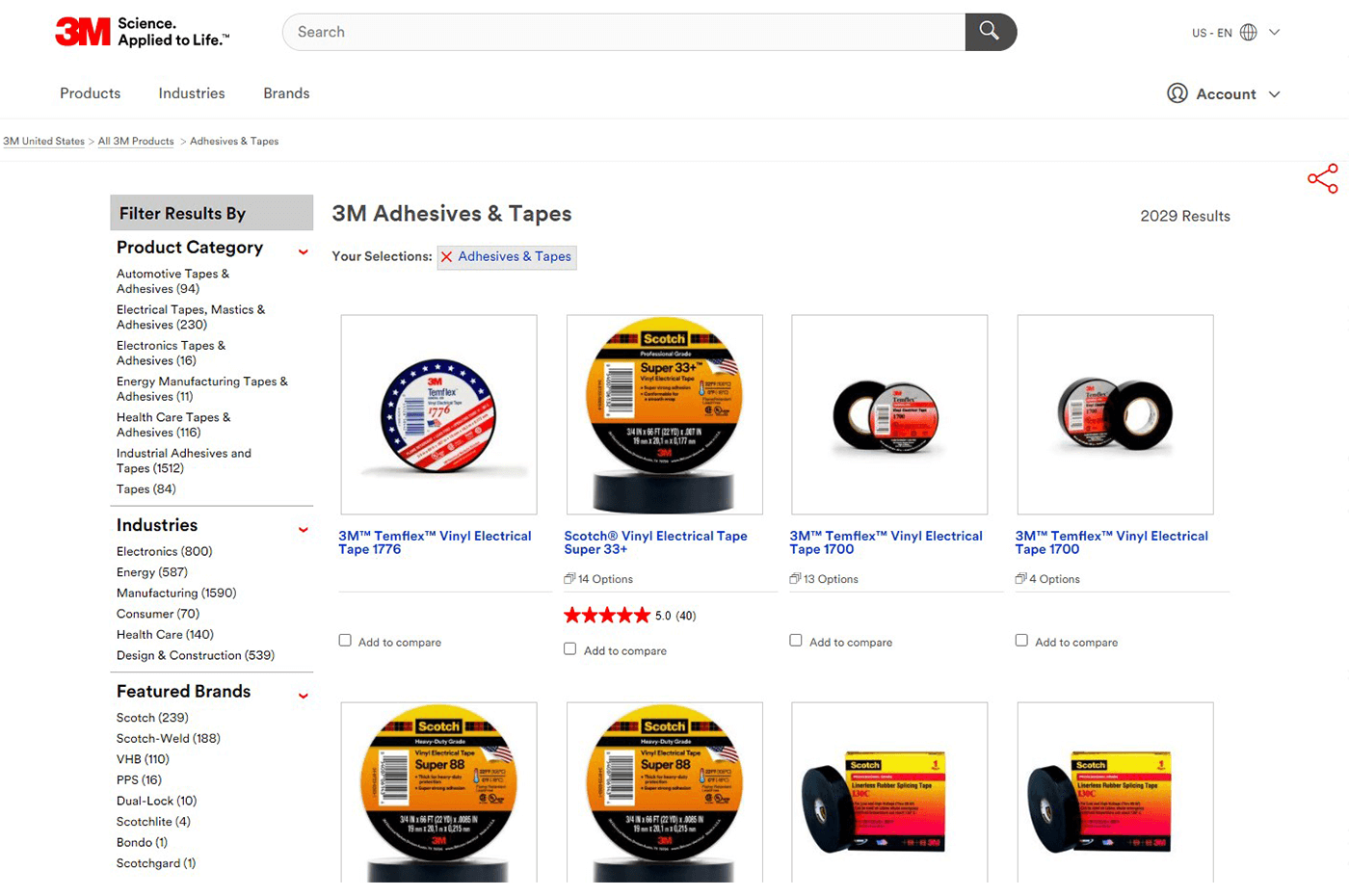
3M also launched a new B2B marketplace this year where their channel partners can all sell their products independently on the same platform. They took a different approach; instead of controlling the buyer process, they allow their channel partners to control all the selling and transactions, even with their own offers and pricing. 3M only facilitates the connection between their partner sellers and buyers. 3M simply provides the front end and a premium customer experience.
This hands-off approach allows 3M to oversee all of their online product sales without having to micromanage vendors. It also allows them to give their vendor customers a better, more efficient buying process while avoiding channel conflict.
Top 5 Features of B2B Marketplaces
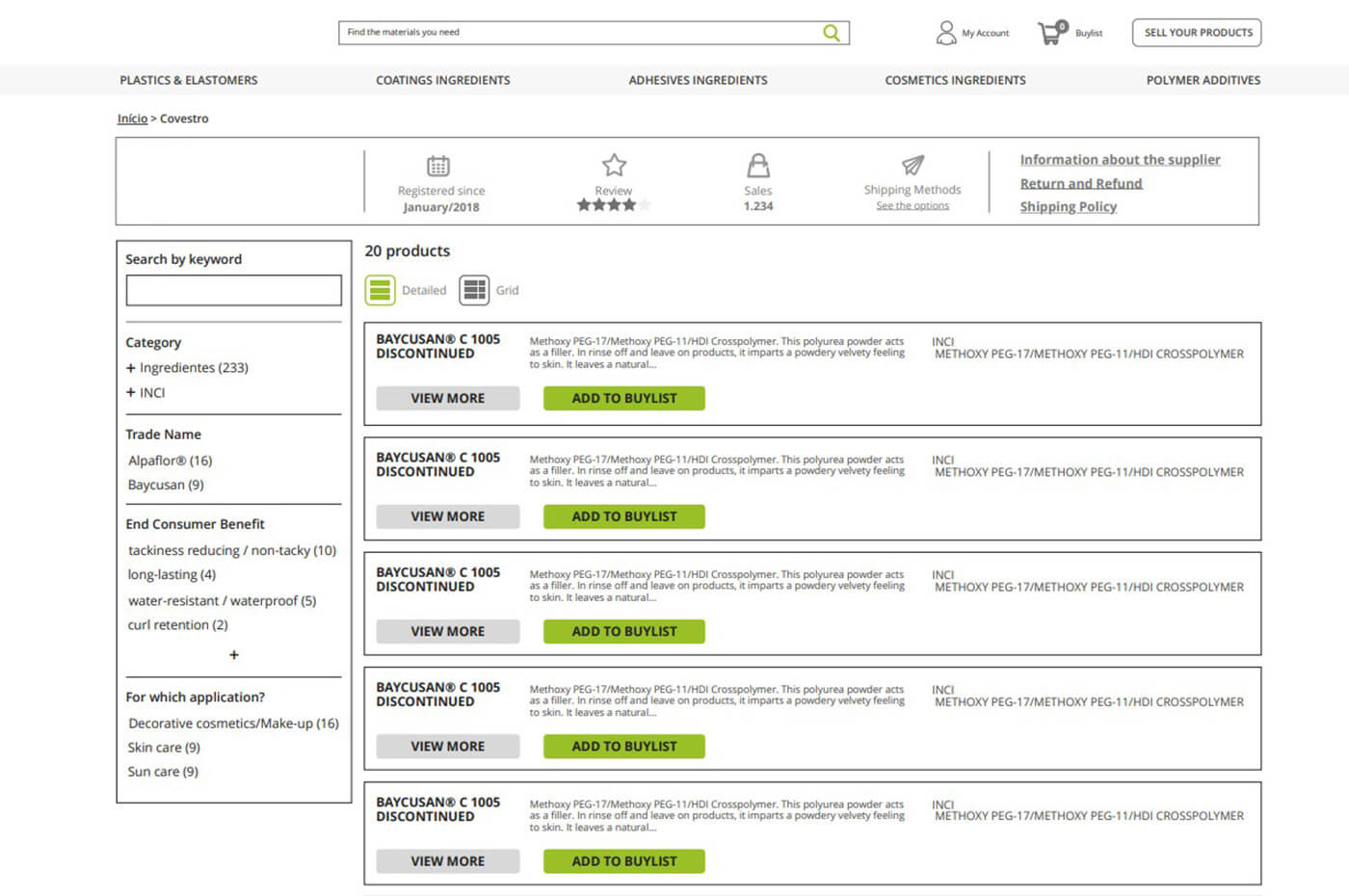
What are some of the biggest benefits of implementing a B2B marketplace?
- Providing faster ordering and automatic reordering, custom pricing, minimum order quantities, shipping options, payment options, and other premium digital features to your customers, all without calling a sales rep.
- Allowing your business and/or individual BUs to scale faster in a rapidly changing digital ecosystem.
- eCommerce platforms, especially SaaS platforms, are easier to maintain and upgrade as needed, compared to manual and physical supply-chain infrastructure.
- Digital systems provide employees with much-needed assistance with automation and analytics, enhancing the capabilities of your teams from sales and marketing to accounting, tax, compliance, and more.
- Making things much easier on their sellers and vendors helps them thrive in this new ecosystem as well, connecting digital systems and speeding up processes for everyone.
With online orders reaching levels previously expected 10 years from now, making the buying process as easy as possible is crucial to ensuring products get to the right places at the right time.
For companies with multiple brand names under their umbrella, the need for an online marketplace becomes even more apparent. The more complicated the fulfillment process, with multiple warehouses, distribution centers, and massive amounts of inventory, the more necessary a comprehensive online portal becomes to automate and speed up these processes.
Different Types of Marketplaces

All kinds of companies are building B2B marketplaces to expand their digital capabilities in 2021. Walmart has launched a digital marketplace, shown above, to compete with Amazon. This allows for a much larger selection of brands and sellers to sell on Walmart’s website. Giving Walmart an even larger market share than they already had.
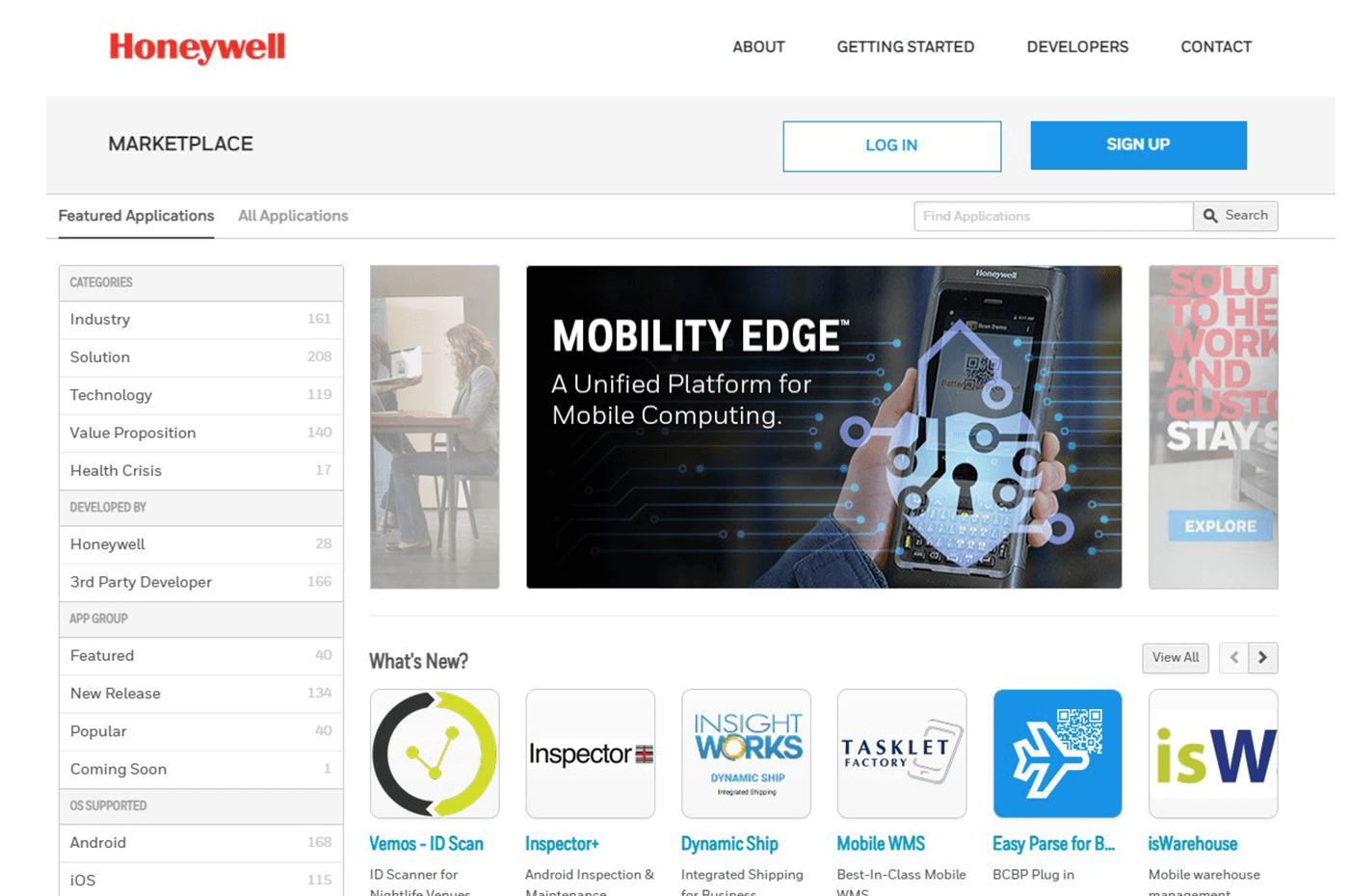
Outside of CPG, a household name in Aerospace manufacturing Honeywell established the Honeywell Marketplace for aerospace parts companies, and in an industry dominated by brand loyalty and trust, it’s almost impossible to get buyers to see your products if you aren’t on Honeywell’s trusted marketplace.
In Healthcare, Fulcrum Digital and Redstage collaborated to create an online buyer and seller marketplace for DMEhub, a seller of durable medical equipment. A more creative use for a B2B marketplace, DMEhub was able to greatly increase the speed and rate at which they could accept orders of important medical equipment while staying 100% HIPAA compliant.
The incredible number of uses and benefits of creating marketplaces for connecting buyers and sellers is well documented. To become a digital leader in 2021, innovation and creativity is sorely needed, and we’re finding new ways to use them every day!
Let’s Get Started!
Remember, 40% to 50% of the Fortune 500 will not exist in a decade. So, for companies on the list looking to stay there, and for rapidly growing companies looking to make their first appearance on the acclaimed list, the message stays the same:
Disrupt, or be disrupted.
The biggest disrupter for these businesses is going to be major marketplaces increasing customer’s ease of access to multiple vendors and confidence they’re making the right decisions. It’s time for you to provide the same value as Amazon, if not more.
Not sure where to start?
Redstage is offering completely free eCommerce and business analysis to the first 5 merchants who schedule one. Schedule your free website usability assessment here and find out where you stand compared to others in the same space. Check out our Top 5 B2B eCommerce Features customers are requiring from merchants here.
Want to learn more about marketplaces and other B2B trends? Check out our webinar on the biggest eCommerce trends we saw during the last year with our CEO here.

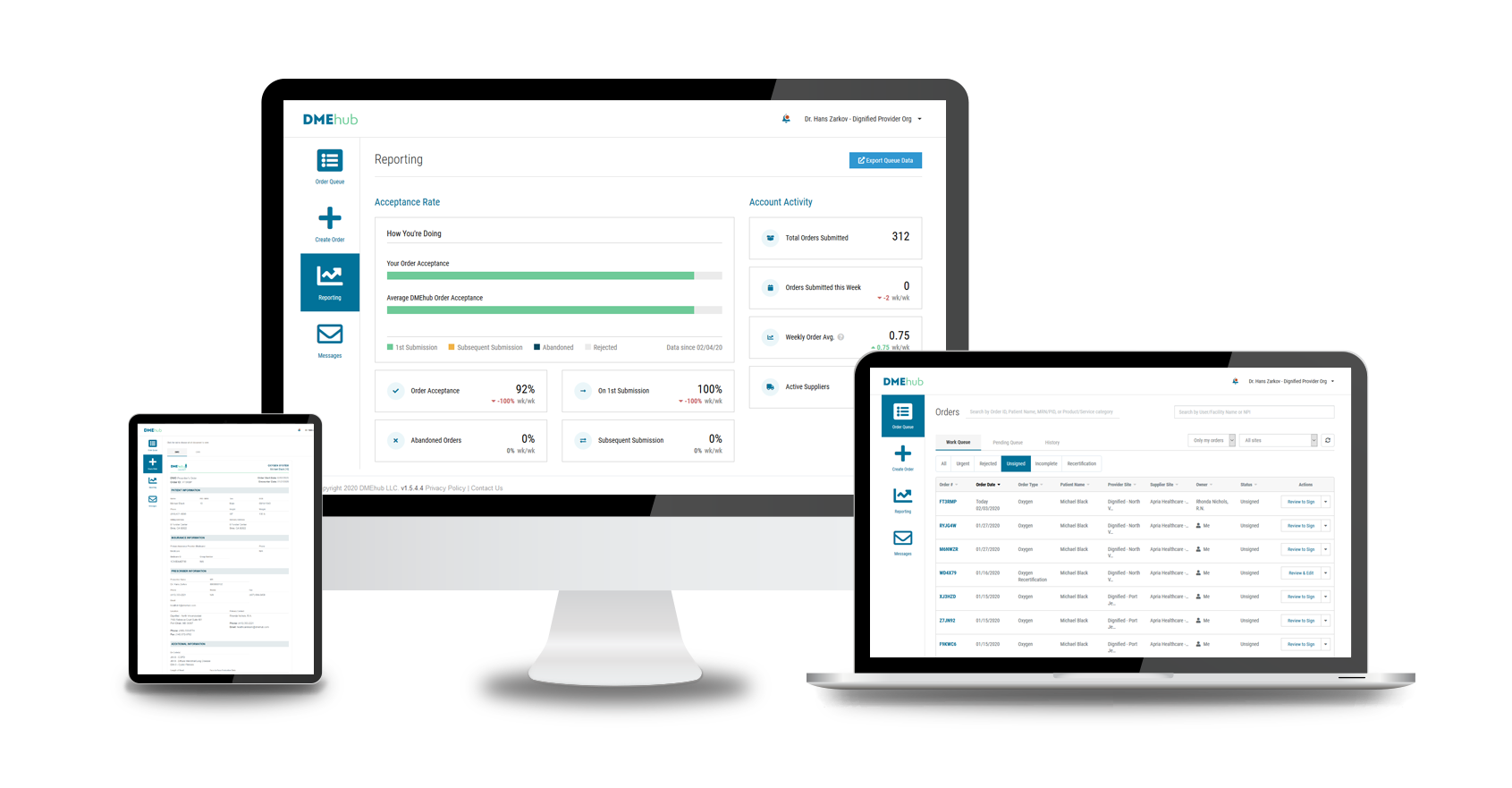
Recent Comments